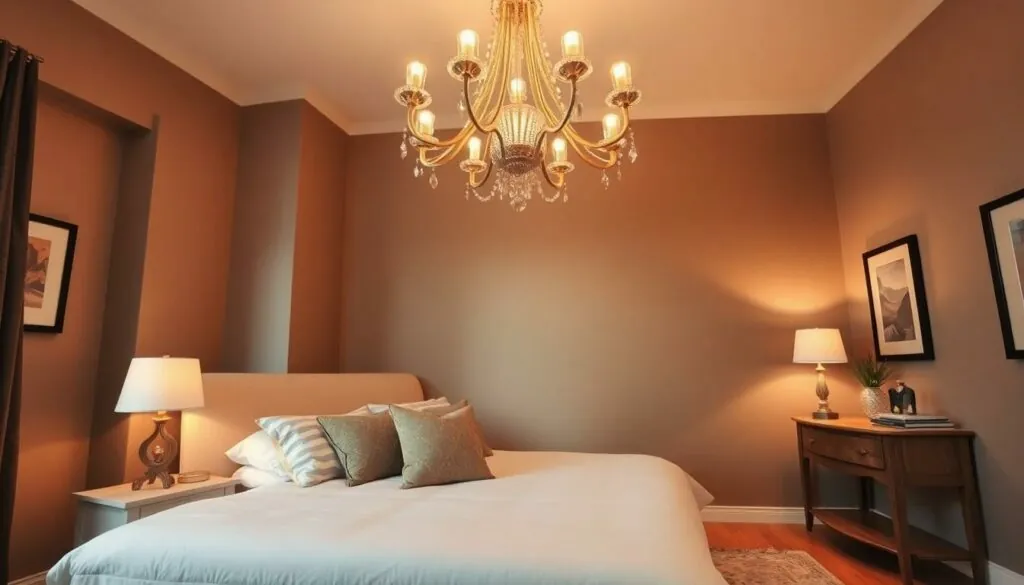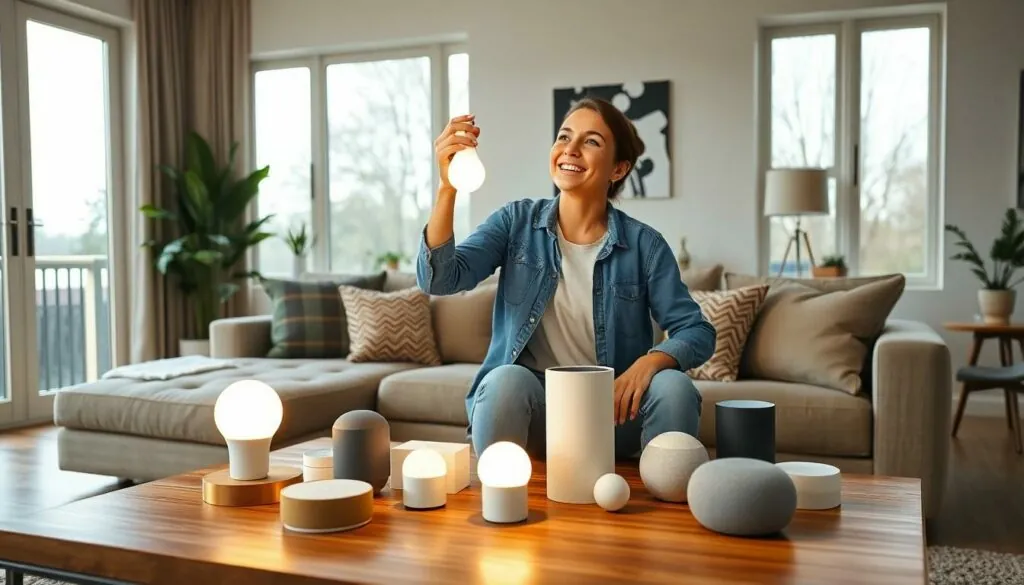Imagine walking into your home and having the lights turn on as if they know you’re there. With smart switches, this isn’t just a fantasy; it’s a reality that’s taking India by storm. These nifty gadgets not only add a touch of modern flair to any room but also make life a whole lot easier. Who wouldn’t want to control their lights with just a tap on their phone or a voice command?
Table of Contents
ToggleOverview of Smart Switches for Home Automation India
Smart switches serve as a pivotal element in the realm of home automation in India. These devices facilitate remote control of lighting, enhancing convenience and safety. Users can manage their lights using mobile apps or voice commands. This innovation resonates with a growing segment of tech-savvy consumers seeking modern solutions for their households.
Several brands dominate the smart switch market in India, including Syska, Wipro, and Philips. Each brand offers unique features tailored to various customer preferences. For instance, Wipro’s smart switches come equipped with programmable timers, allowing users to automate lighting schedules. Philips Hue stands out for its customizable color options, providing a dynamic ambiance suitable for any occasion.
Consider the compatibility aspect when selecting smart switches. Most models integrate seamlessly with popular smart home ecosystems, such as Amazon Alexa and Google Assistant. This flexibility enhances user experience by allowing for voice-activated controls across multiple devices.
Installation processes typically vary among different models. Many smart switches allow for straightforward DIY setups, while others may require professional installation. In essence, evaluating technical requirements ensures proper functionality.
As sustainability becomes more critical, energy-efficient smart switches play a significant role. Users can monitor energy consumption through dedicated apps, promoting responsible usage practices. This capacity aligns with India’s growing focus on energy conservation initiatives.
With the ongoing technological advancements in smart home devices, the trend toward smart switches will likely intensify. Continuous updates and innovations promise to keep capacities evolving, meeting the needs of an increasingly automated lifestyle in Indian homes.
Benefits of Smart Switches
Smart switches provide various advantages for home automation in India, enhancing overall living experiences. Users benefit from features like voice control and mobile app integration, making life more convenient.
Enhanced Convenience
Smart switches improve daily routines significantly. Homeowners can easily manage lighting through their smartphones or voice commands, eliminating the need to walk to switches. Following commands, smart switches adjust room lighting to desired levels effortlessly. Automation allows for scheduled lighting, which helps create specific atmospheres for different occasions. In addition, integration with smart home systems enables these switches to communicate with other devices, such as security systems and smart speakers. Compatibility with popular ecosystems makes setup straightforward. Thus, enhanced convenience ranks high among the benefits of smart switches.
Energy Efficiency
Energy efficiency stands out as a key advantage of smart switches. Smart switches provide energy monitoring capabilities, allowing users to track consumption. With this information, homeowners can identify excessive usage and adjust accordingly. Additionally, programmable timers can turn lights off automatically, reducing energy wastage. Many models also feature energy-saving modes that optimize usage based on occupancy. Aligning with sustainability goals, these devices contribute to lower electricity bills and reduced carbon footprints. Smart switches ultimately promote a greener lifestyle while delivering cost savings.
Popular Brands and Models
Smart switches in India come from several reputable brands, each offering unique features that cater to modern home automation needs.
Brand A Features
Syska offers innovative smart switches equipped with advanced features. Users appreciate their compatibility with both Amazon Alexa and Google Assistant for seamless voice control. The ability to program schedules enhances convenience, letting users automate lighting based on their routines. Options for customizable colors allow for creating specific moods, appealing to those who enjoy ambiance in their spaces. Energy monitoring capabilities also stand out, giving homeowners insight into their electricity usage and encouraging efficiency. The installation process caters to various skills, as some models support DIY setups while others may require professional assistance.
Brand B Features
Wipro excels in designing smart switches that blend functionality with aesthetics. Many models include programmable timers, which users can set to control lights according to their preferences and schedules. Integration with smart home ecosystems simplifies management, making it easy to operate devices through voice commands or mobile apps. Features like adjustable dimming options provide flexibility for different settings and occasions, contributing to a personalized home experience. The energy-saving modes available in Wipro switches promote sustainability, helping consumers reduce power consumption. Additionally, quick and straightforward installation options cater to both novice and experienced users.
Installation Process
Smart switches can simplify home automation with properly executed installation. Consideration of installation options influences user experience significantly.
DIY Installation vs. Professional Help
DIY installation appeals to tech-savvy individuals. Many smart switches come with user-friendly manuals and straightforward setups. It allows users to save on labor costs while enjoying the satisfaction of personal involvement. Basic electrical knowledge proves beneficial in ensuring safety. However, complicated wiring or older electrical systems may complicate the process.
Professional help offers peace of mind for those unfamiliar with electrical work. Experts can ensure compliance with local codes and proper functionality. Hiring a professional is advisable for complex installations, especially those involving multiple switches or integration with existing systems. They navigate challenges seamlessly, minimizing the risk of errors or hazards. Thus, weighing convenience against expertise guarantees successful smart switch implementation.
Comparison with Traditional Switches
Smart switches offer significant advantages over traditional switches. Convenience stands out as a primary benefit. Users can control lighting remotely through mobile apps or voice commands, eliminating the need to manually flip switches. Traditional switches lack this functionality, limiting user control to physical presence.
Energy efficiency also marks a clear distinction. Smart switches come equipped with energy monitoring features, enabling homeowners to track their consumption. Traditional switches do not provide this insight, which makes it challenging to optimize energy usage effectively.
Installation processes differ notably between the two. Smart switches often require a straightforward setup, appealing to tech-savvy users. Traditional switches involve basic wiring but offer no automation features, necessitating manual operation at all times.
Customization options enhance user experience with smart switches. Programmable timers and adjustable dimming settings allow users to create specific atmospheres. Traditional switches do not provide these flexible settings, restricting personalization.
Consider integration capabilities as another factor. Smart switches work seamlessly with popular smart home ecosystems like Amazon Alexa and Google Assistant, facilitating voice-activated controls. Conversely, traditional switches lack this compatibility, creating a barrier to modern automation experiences.
Cost can present a contrasting viewpoint. Though smart switches may have higher upfront costs, long-term savings emerge through energy efficiency and reduced wastage. Traditional switches require no initial investment in smart technology but incur ongoing electricity costs due to inefficiencies.
Smart switches revolutionize home automation compared to traditional switches, offering enhanced convenience, energy efficiency, and customization. Features facilitating remote control, integration capabilities, and energy monitoring illustrate how smart technology reshapes modern living.
Future Trends in Home Automation
Emerging trends in home automation reflect technological advancements and evolving consumer preferences. Smart switches are likely to become even more integrated with artificial intelligence, allowing for predictive behavior. This integration can help in automating lighting based on user habits, enhancing user experience through increased convenience.
Enhanced interoperability will also play a crucial role in smart home technology. Products from multiple brands will collaborate seamlessly, promoting a unified ecosystem. Homeowners will benefit from the growing compatibility of smart switches with various devices, ensuring a more cohesive smart home environment.
Investment in energy efficiency features represents another significant trend. Smart switches equipped with advanced monitoring tools can provide energy usage analytics, supporting homeowners in minimizing waste. These energy-saving functionalities align well with sustainability initiatives, emphasizing responsible energy consumption in modern households.
Voice control technology will continue to evolve, making smart switches even more accessible. As AI voice assistants become more sophisticated, commands will be understood with greater accuracy. The clarity and responsiveness of these voice interactions will further simplify everyday tasks.
Developers are also focusing on aesthetic designs, catering to consumer desire for elegance in home fixtures. Sleek and modern smart switches can complement home decor while remaining functional. Customizable features, such as color adjustments, will enhance personalization options, allowing homeowners to match their lighting with different moods and settings.
The growing awareness of cybersecurity will prompt manufacturers to enhance security measures. As homes become more connected, ensuring data protection will be essential. Secure connections will help build trust in home automation technology among consumers.
Finally, affordability will drive adoption rates. As production costs decrease, smart switches will become more mainstream. Increased competition among brands will lead to diverse options in various price ranges, making smart home technology accessible to a larger audience.
Smart switches are revolutionizing home automation in India by offering unparalleled convenience and energy efficiency. As technology continues to advance, these devices are becoming more integrated into everyday life, allowing users to control their lighting effortlessly through mobile apps or voice commands. Major brands like Syska and Wipro are leading the charge with innovative features that cater to diverse consumer needs.
The future looks promising with trends pointing towards enhanced AI integration and improved interoperability among smart devices. As these technologies evolve and become more affordable, homeowners can expect a seamless and sophisticated smart home experience. Embracing smart switches not only aligns with modern living but also supports sustainability goals, making them a smart investment for the future.




